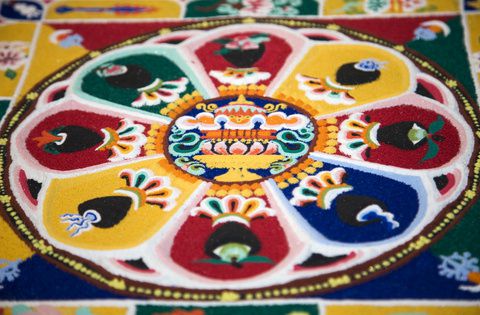CG Jung’s Approach: Not for Everyone, but Essential for Some

Let’s face it: there are a lot of different forms of therapy / counselling out there. So, why would someone choose to work on themselves with a Jungian therapist, as opposed to another type of therapist? Well, here’s a list of 6 prominent factors, which certainly led me to do Jungian analysis, and which ultimately convinced me to become a Jungian analyst. These are not the only factors, but they are certainly 6 big ones.
6 Reasons to do Jungian Analysis
1. A Jungian approach emphasizes individuality, and plurality. Jung’s psychological work was always oriented to the particular individual. He felt that it was in our unique individuality that we are most human. He also was among the first in modern psychology to recognize that there is not just one way to be a living growing human being: there are a plurality of ways, as he recognized in his psychological types. So, I am unique, but also similar in some ways to other human beings, and very different from others. There is real strength and value, in my opinion, in the way that Jung is always calling us back to our individual psychological paths. Not everyone needs this kind of an emphasis — but it’s very significant and even essential for some people.
2. The Jungian approach recognizes that human beings are not just simply rational. Jung acknowledged that people have a rational component, and that some people — thinking types — are predominantly rational. But there is a whole lot more going on within us than just rational deduction. There is our feeling, our intuition and our ability to relate to the external world though our sensation. When we are stuck, the Jungian approach offers hope that other aspects of ourselves than our thinking may help us to find our way through.
3. The Jungian approach recognizes that, as people, we’re not just conscious. Unlike those types of therapy that just seek to deal with the impulses and aspects of our behaviour that are purely conscious, and that the ego, or waking mind is aware of, Jungian analysis seeks to get at those aspects of us that are not connected to consciousness, and seeks to make them conscious.
4. The Jungian approach is certainly not just about pathology. While many forms of therapy center in on identifying what is “abnormal” or “pathological” in clients’ behaviour, a Jungian approach focuses on the client as a unique individual. One of Jung’s favourite sayings was that the oak tree is potentially and latently in the acorn. In a similar manner he saw that what the deepest parts of the psyche of any individual, what Jung called the Self was striving towards was the expression and living out of the uniqueness and wholeness of the individual’s personality. To strive for this is not just about overcoming pathology and deficiencies: it is about growing, and becoming that which we have been destined to become.
5. Jungian analysis is about finding ways to live fully and abundantly without having “all the answers”. Jung and the Jungian tradition have always maintained that there are vast portions of the human psyche that we simply cannot fully understand. In the face of this, some forms of psychology simply opt for very simplistic answers that turn the individual human being into a mere machine or puppet. These approaches unfortunately leave the individual human being “beyond freedom and dignity”, as the behavioural psychologist B.F. Skinner freely admitted. By contrast, Jung’s approach emphasizes the uniqueness and individual dignity of each human being — and the fact that each of us represents something that fundamentally cannot be totally captured by the human intellect.
6. Jungian analysis is about the sense that, as individual human beings, we share a journey with all other human beings. Jung was ahead of his time in recognizing that each of us, while we are unique, also shares in a profound way in the journey that has been taken by the whole of the human race, in every place and time. This emphasis gives us a sense of compassion and connection to the rest of the human race, and also a sense of sharing in something in which every human since the beginning has shared. Jung always spoke about drawing on the resources of the “two million year old man” within us. To me, at least, it’s good somehow, to know that, in my own unique way, I share a journey with all other humans — I and many others find that a very grounding realization.
Does this kind of an approach speak to you? I’d be very interested to hear, and to see any comments that you might have on this post. If there’s an aspect of Carl Jung’s thought that really resonates with you, I’d be more than eager to hear.
How important to you is it to feel that your life is the unfolding of a unique and meaningful path?
My very best wishes to each of you as you make your individual journeys of wholeness and self-discovery,
Brian Collinson, Psychotherapist & Jungian Analyst
[cta]
PHOTO CREDIT: © Pilart | Dreamstime.com
© 2010 Brian Collinson

Elona hartjes
As a teacher, I think it is important for me to remember that in class my students and I are all in this together. That’s why I spend so much time building relationships so that we can support each other on our journey through the semester.